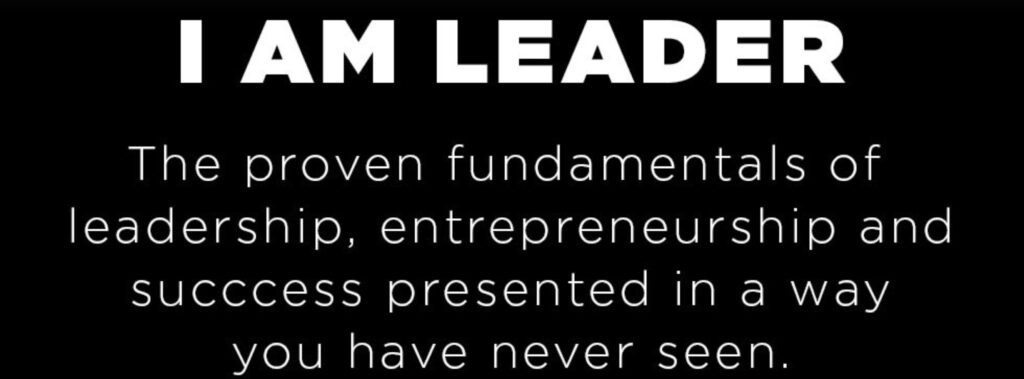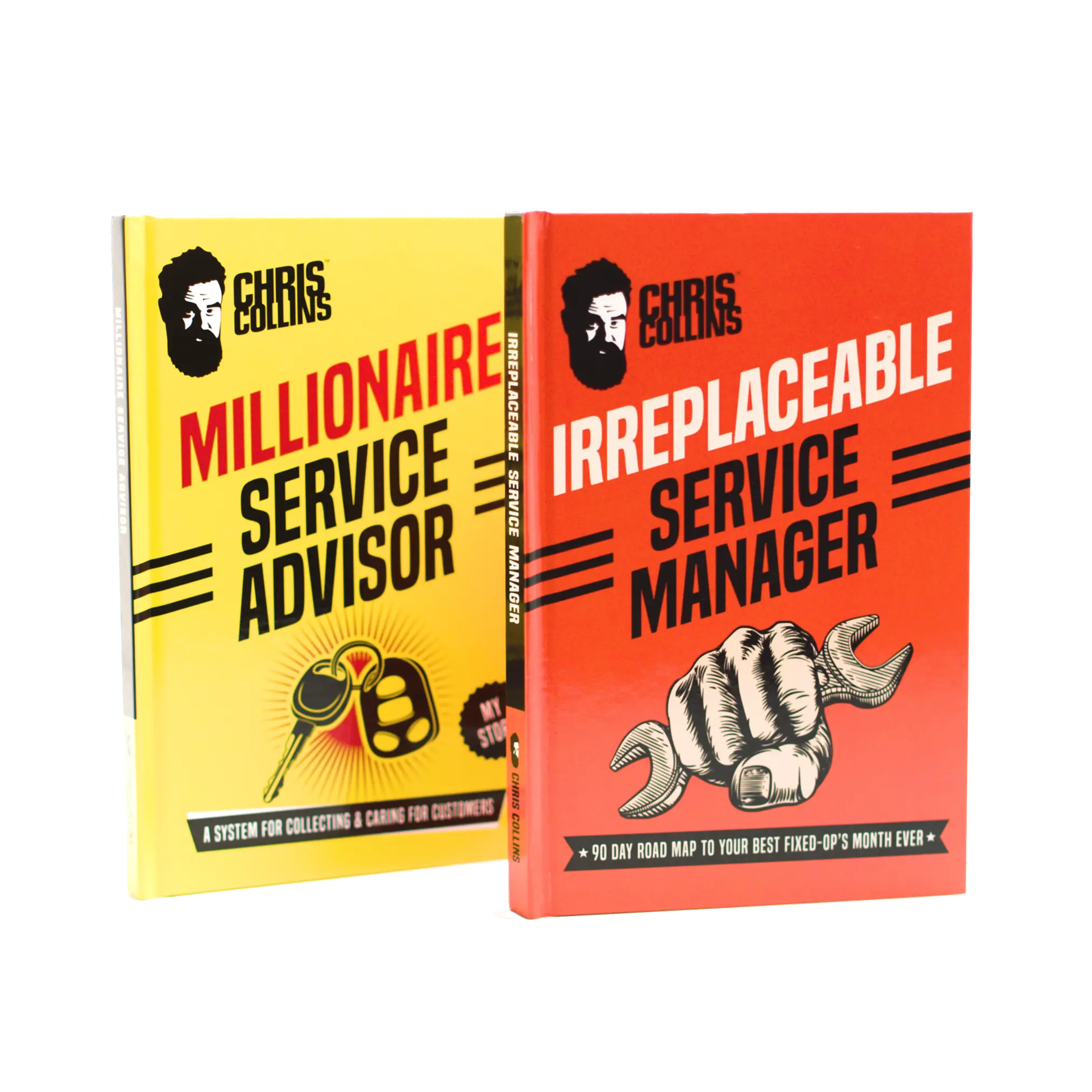Ever wondered why it is that some service advisors hit (and exceed) their goals, and crush the competition, while others can’t seem to get to that next level? What are the reasons why some service advisors fail? The automotive industry can be a tough game, but just like in any other industry, there are things you can do to push ahead of the competition…and other things that will pretty much guarantee failure.
I talked to service pro Jeremy O’Neal about some of the reasons why service advisors fail, so you can avoid making their mistakes on this week’s Service Drive Revolution. Spoiler alert– all of these can be avoided with the proper training.
Before we get into that, though…
If you haven’t entered the $50,000 Service Manager Challenge yet, what are you even doing? The big prize is a fully loaded 2020 Jeep Gladiator and the only competition is yourself. What do I mean? All of the details are here, so check it out and get moving.
Back to why service advisors fail or, as Jeremy would put it, “un-succeed,” because according to him, you only FAIL if you give up. If you ask me, a service advisor who doesn’t meet his goals at one shop and then moves on to the next to do the same thing again isn’t “unsuccessful”…they’re a straight up failure at their job. But you can call it whatever you want–either way, why do some service advisors fail?
1. They beg for a Customer Service Index (CSI)
Listen, both Jeremy and I know that CSI is important to dealerships and therefore, to service advisors. It often dictates how much your paycheck will be and whether or not you’re going to move up the ladder. But when you’re a service advisor and you’re begging your customers to fill out the survey and give you a good score, that’s a bad look. If you want someone to give you a good score, perform in such a way that they’ll want to do it without you asking. Don’t slack on customer service and then pop up and ask them to take the time to fill out your CSI and give you a solid score.
What kind of sense does that make? It’s not only annoying to the customer, but it’s also a pretty strong indicator that you haven’t been doing a good enough job to warrant the score you want. Instead, kill it at customer service, then let the customer know that if something goes wrong with their car when they get it home, you want to hear about it directly so you can take care of it. Tell them that they’ll be getting a survey, which is important for your business, but that you would much rather hear about any issues directly so you can take care of them as efficiently as possible. This also builds rapport and keeps them coming back to you. Jeremy’s got a good story about CSI–give the episode a listen to hear it.
2. They don’t have a system
You know those people who rely on their good looks and charm to succeed? And it’s all well and good until they run out of looks and charm because they don’t have anything to back it up? It happens in the auto industry all the time. So many of the service advisors I’ve seen fail have relied on luck or charm or whatever else they naturally have going for them that have allowed them to avoid creating a scalable structure.
They pet the dog, their customers love them, and all is well and good in the short-term. But every single time, there’s a cap that comes along with this approach that causes these advisors to plateau or even start to trend downward when their charm fades. It’s not a long-term strategy. So even if this is your approach right now, watch the other service advisors around you who have been successful for a long time and develop a plan that will continue to work over time. I talk about my system more in the episode if you’re looking for some guidance. I call it the Chris Collins Circle of Trust.
3. They don’t have a pregame
More often than not, failing service advisors are in reaction mode. They start off their day in such a way that they’re not prepared to run the game the way they want to and they don’t even realize how big of an impact it’s having on their performance. The same is true for every position in every industry, whether you’re a service advisor, service manager, dealership principal, gym owner, entrepreneur, or solo-preneur, you need a routine that sets you up for success.
Jeremy calls his pregame strategy his “Golden Hour of Power”. Whether he’s at his shop, working at a dealership, or doing an on-site training, he gets there in the morning and has a routine before he gets started. Here’s what he does:
A couple things I do is I never work on administrative tasks during game time. Game time is from 8:00 AM to 5:00 PM. That’s where I’m writing tickets out, consulting with customers, petting the dog, making sales presentations, going through all that. I can’t do administrative stuff during that time. So, I do my administrative stuff either in the morning or in the afternoon. And then I also get my log book out and set my goals. Car count goals, sales goals. And then I look at my slow day plan. So, now I’m prepared for what I want to do. I’ve got my mind set right. I do some reading, I might listen to one of your podcasts, all that stuff. And then I would look at the appointments that are coming in. Make sure I have everything prepared and that I’m ready to go. So, that hour in the morning sets you up. So, it’s the golden hour of power and you’ve got to have a pregame ritual to get yourself set up for success.
Whether you want to emulate Jeremy’s pre-game or come up with your own is your call. I’ve got my own pregame that looks a little different. All that matters is that you have one that works for you.
4. They don’t pet the dog
If you’ve been following along with anything in the world of Chris Collins, you know what it means to pet the dog. If you’re new here, watch this video to get caught up. No BS, no rushing, but making time to provide them with the kind of service they’re looking for an deserve. When service advisors fail, a big part of it is often that they’ve made the mistake of allowing being “too busy” to get in the way of taking care of their customers. They start acting like the car is the commodity, rather than the customer and are surprised when that customer doesn’t come back. That means that they’re constantly trying to find new business instead of nurturing existing and loyal customer relationships.
5. They prejudge people
Some service advisors will look at a new customer, look at their car, and decide right then and there what they’re going to spend with them and how they’ll make decisions about their car. Time and time again, that’s a huge mistake. To give you an example, when I first started, many of my best customers were young college girls with old Volkswagens that my colleagues assumed wouldn’t pay a dime to keep them up or that if they told them their repairs would cost more than the car is worth, they’d walk away. They were dead wrong. Even when I told these girls the truth about the situation, they decided to repair their cars. Listen to the episode to hear how. The moral of the story is to keep an open mind and don’t assume anything about your customers before you have more information about them and their car. Treat everyone with respect off the bat, no matter what.
6. They diagnose in the service drive
Sometimes, service advisors try to be experts and diagnose what’s going on in the drive. A lot of times this happens to technicians that become advisors. They sabotage themselves because they presume that they can diagnose what’s going on, when their job is actually to get all the information, put it on the repair order, and let the technician diagnose it. Not only isn’t it their job, but it can also be an incorrect diagnosis that leads the customer to distrust you. You don’t have to be the hero for the customer and fix the car in the drive. There’s no magic wand that’s going to go out there and fix it. The system works, so use it if you want to succeed at your job.
7. They offer discounts as a rule, not an exception
For some service advisors, discounts are the tool they use to close the sale every time. what they don’t understand is they’re diminishing their value right out of the gate. The customer isn’t even asking for a discount and the advisor is just assuming that it’ll sweeten the deal, when really it just looks like the work might not actually be worth the full price. It shows a lack of confidence. Instead, offer your best pricing out of the gate instead of overcharging and then offering a discount.
8. They don’t like people
When it comes down to it, being a successful service advisor is all about people–knowing how to treat them, how to make them feel, what they’re looking for (and not looking for), how to keep them coming back. It’s unreal how many service advisors I’ve met who just straight up don’t really like people. They’re grumpy, miserable, and don’t smile at people. They’re just there because they needed to get a job and somehow they made it past the manager and got the job. If you don’t like people, you’re going to fail in this role and you won’t last. Trust me on that.
9. They’re not consistent
For service advisors, consistency is EVERYTHING. I can’t stress this enough. Sometimes, especially in independent repair shops, they’ll pull out all the stops for the big sales and then when someone comes in for an oil change, it’s basic, low-level service. What they don’t realize is that if you pull out all the stops–or at least some of them–for every sale, you’re setting yourself up for that person to come back and spend more on bigger ticket repairs and maintenance. Consistency in customer service is critical too. Pet the dog for every customer, every time they come in, and you’ll build a loyal customer base before you know it.
10. They aren’t pros
This one seems obvious, but I think you’d be surprised at the number of service advisors who just aren’t pros at what they do. Jeremy told a story on the podcast that really hits the nail on the head as to what I mean by this. I won’t steal his thunder here…go listen to the podcast.
So, there you have it. If you want to be a successful service advisor, don’t do these things. Jeremy and I will be coming back to you soon to tell you how to run a shop. Service advisor training for independent shops is his area of expertise, so we’re planning a collaboration that we’ll share with you soon. Stay tuned. And don’t forget to enter the Service Manager Challenge Jeep Gladiator Giveaway. It’s you versus yourself…what do you have to lose?










